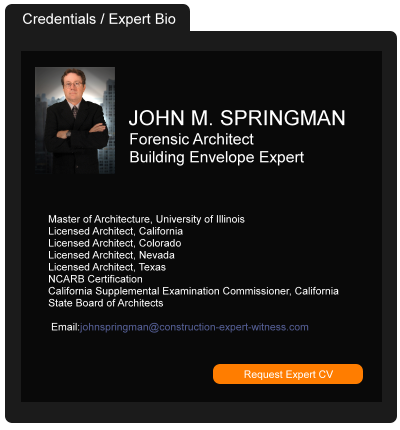Nine Firm Members Recognized as Super Lawyers and Rising Stars
July 14, 2016 —
Ahlers & Cressman PLLC BlogAhlers & Cressman PLLC attorneys have again been recognized as “Super Lawyers” and “Rising Stars” (attorneys under 40 years of age, or practicing under 10 years) in Washington for 2016.
Six Ahlers & Cressman attorneys were recognized as Super Lawyers: John P. Ahlers, Paul R. Cressman, Jr., Scott R. Sleight, Bruce A. Cohen, Lawrence S. Glosser, and Brett M. Hill. Additionally, three of the firm’s attorneys have been recognized as Rising Stars: Ryan W. Sternoff, James R. Lynch, and Lindsay K. Taft.
Super Lawyers selects attorneys using a multiphase selection process, involving peer nominations, evaluations, and third-party research. Each attorney candidate is evaluated on 12 indicators of peer recognition and professional achievement. Only five percent of the total lawyers in Washington State are selected for the honor of Super Lawyer, and no more than 2.5 percent are selected for the honor of Rising Star.
Read the court decisionRead the full story...Reprinted courtesy of
Ensuring Efficient Arbitration of Construction Disputes Involving Mechanic’s Liens
February 18, 2020 —
Robert G. Campbell & Trevor B. Potter - Construction ExecutiveThere may be tension between the enforcement of statutory mechanic’s lien claims when a contractual dispute resolution provision calls for arbitration. Once the parties are in arbitration, it may not be clear whether the arbitrator has authority to make factual determinations regarding amount and validity of mechanic’s liens, and whether courts are bound by these determinations. This uncertainty stems from the fact that in most states a mechanic’s lien can only be enforced by a court of competent jurisdiction. Indeed, many mechanic’s liens statutes define foreclosure as a “judicial process,” and courts generally have exclusive jurisdiction to issue orders foreclosing on real property1.
The risk for contractors and owners is that they will spend time and money re-litigating factual issues related to proving elements of a mechanic’s lien claim, including the proper lien amount, timeliness and other prerequisites. Without a clear understanding of what issues and elements are arbitrable, the parties run the risk that an arbitrator will rule on certain elements only to find out during post-arbitration lien foreclosure proceedings that the arbitrator lacked authority to make determinations on those elements. Questions therefore arise whether a court will enforce the arbitrator’s determinations and whether the parties must relitigate mechanic’s lien issues creating a further risk of inconsistent rulings.
These risks can be minimized through arbitration provisions which address these issues, express requests in arbitration demands and by ensuring that arbitration awards contain explicit determinations of mechanic’s liens issues.
Reprinted courtesy of
Robert G. Campbell & Trevor B. Potter, Construction Executive, a publication of Associated Builders and Contractors. All rights reserved.
Mr. Potter may be contacted at tpotter@coxcastle.com
Mr. Campbell may be contacted at rcampbell@coxcastle.com
Read the court decisionRead the full story...Reprinted courtesy of
New York Governor Expected to Sign Legislation Greatly Expanding Recoverable Damages in Wrongful Death Actions
June 20, 2022 —
Nicholas P. Hurzeler - Lewis BrisboisNew York, N.Y. (June 3, 2022) - The New York Senate and Assembly recently passed
Bill S74A, also known as the Grieving Families Act, and it is expected that Governor Hochul will likely sign the bill into law. If passed, the law would significantly expand the damages available in wrongful death actions in a number of ways.
First, Section 1 would amend EPTL section 5-4.1 to extend the statute of limitations to commence a wrongful death action from two years to three years and six months, a significant increase that will permit many more wrongful death cases to go forward.
Second, Section 2 amends EPTL section 5-4.3, to allow recovery for emotional damages if a tortfeasor is found liable for causing a death. The current law only allows recovery of economic damages, such as economic hardship caused by a loss of parental guidance. The old law did not permit recovery of damages for grief, sympathy, and loss of companionship or consortium (see, e.g., Liff v. Schildkrout, 49 N.Y.2d 622 (1980); Bumpurs v. New York City Hous. Auth., 139 A.D.2d 438, 439 (1st Dept. 1988)), but that would change with passage of the new bill.
Read the court decisionRead the full story...Reprinted courtesy of
Nicholas P. Hurzeler, Lewis BrisboisMr. Hurzeler may be contacted at
Nicholas.Hurzeler@lewisbrisbois.com
New Jersey Construction Company Owner and Employees Arrested for Fraud
December 04, 2013 —
CDJ STAFFFrank Chimento, Jr., the owner of Chimento Construction of Parsippany, New Jersey, and three of his employees, Joseph Carsillo, Frank Chimento III, and Carl J. Corso, were arrested by federal agents. The elder Chimento is accused of falsifying his own income taxes, as well as failing to collect and turn over federal and state payroll taxes. He is additionally charged with falsifying union benefit fund contributions.
The three employees are also accused of filing false income tax statements and also of attempting to defraud the state of New Jersey of unemployment compensation benefits. An additional unnamed conspirator made transactions at multiple financial institutions in order to pay employees directly in cash.
One of the three employees, Mr. Carsillo, worked for the company and received cash payments while maintaining to the New Jersey Department of Labor and Workforce Development that he was unemployed. Mr. Carsillo was receiving $526 per week from the NJDOL-WD in unemployment benefits, starting in 2009. From 2009 through 2011, Mr. Carsillo received $19,988 in unemployment benefits and an additional $351,788 in wages from Chimento.
Read the court decisionRead the full story...Reprinted courtesy of
Apartment Boom in Denver a Shortcut Around Condo Construction Defect Suits?
September 24, 2013 —
CDJ STAFFFor every condo currently being built in Denver, there are 40 apartment units. And there are some who think that this is being done to evade construction defect lawsuits. At issue is the statute of limitations for construction defects. Under Colorado law, condominium buyers have six years after the completion of constrution to sue for construction defects, unless the defect isn’t discovered until the fifth or six year, in which case they are given until the eighth year. But what if someone built an apartment building, rented out the units for six years, and then converted the whole thing to condominiums?
Some think that the construction defect clock would be reset. Amie Mayhew, the CEO of the Colorado Association of Home Builders noted that if this is the case, “you’d be back at square one.” But Doug Benson, a construction defect attorney, thinks that if a builder did this, and didn’t make any further construction, no one would be able to sue for construction defects, even if the condo owners found them. Mr. Benson, who represents homeowners, said that “they’re apartment homes and that’s just to avoid liability.”
Mike Gifford, the president of the Associated General Contractors of Colorado, noted that insurance companies were already wary of apartment complexes, fearing that they would be turned into condos. Whatever the cause, Denver seems to have a shortage of condos. But, they’re going to have a lot of apartments available.
Read the court decisionRead the full story...Reprinted courtesy of
Real Estate & Construction News Roundup (5/1/24) – IMF’s Data on Housing, REITs Versus Private Real Estate, and Suburban Versus Urban Office Property Market
May 28, 2024 —
Pillsbury's Construction & Real Estate Law Team - Gravel2Gavel Construction & Real Estate Law BlogIn our latest roundup, apartment sales fall for seventh straight quarter, raising real estate capital proves challenging, aspiring homeowners face strong obstacles, and more!
- Rent increases have softened across the U.S. over the last year, and the combination of high home prices, elevated mortgage rates and low housing inventory creates strong obstacles for aspiring homeowners. (Alex Gailey, Bankrate)
- The housing market is showing innovative efforts to combat the inventory crisis with initiatives including repurposing commercial properties into residential units. (Angel Smith, Yahoo)
- Apartment sales fell for the seventh straight quarter in Q1, dropping 25% year over year to $20.6 billion. (Leslie Shaver, Multifamily Dive)
Read the court decisionRead the full story...Reprinted courtesy of
Pillsbury's Construction & Real Estate Law Team
Anti-Concurrent, Anti-Sequential Causation Clause Precludes Coverage
February 26, 2015 —
Tred R. Eyerly – Insurance Law HawaiiWhere the building was damaged by both a covered cause and a non-covered cause, the policy's anti-concurrent/anti-sequential causation clause barred coverage for a collapsed building. Ashrit Realty LLC v. Tower Nat'l Ins. Co., 2015 N.J. Super. Unpub. LEXIS 107 (N.J. Super. Ct. App. Div. Jan. 20, 2015).
The property sustained moderate damage during a storm on August 14, 2011. More extensive damage was caused by Hurricane Irene two weeks later. After the hurricane, a large hole formed due to the collapse of a pipe which ran underneath the property. Once the pipe collapsed, leaking water caused substantial soil erosion, which led to the collapse of the rear portion of the building.
Read the court decisionRead the full story...Reprinted courtesy of
Tred R. Eyerly, Insurance Law HawaiiMr. Eyerly may be contacted at
te@hawaiilawyer.com
Constructive Changes – A Primer
October 02, 2018 —
Jonathan R. Mayo - Smith CurrieA “constructive change” occurs when an owner action or omission not formally acknowledged by the owner to be a change in the contact’s scope of work forces the contractor to perform additional work. Constructive changes are not formal change orders, but informal changes that could have been ordered under a contract’s changes clause if the change had been recognized by the owner. The constructive change doctrine recognizes that being informally required to do extra work is similar to a formal change order and should be governed by similar principles. Thus, if it is found that a constructive change order did occur, the contractor may be entitled to payment for additional costs incurred, and an extension to the contract performance period.
Constructive changes most often arise where there is a dispute regarding contract interpretation, defective plans and specifications, acceleration or suspension of work, interference or failure to cooperate with the contractor, misrepresentation or nondisclosure of superior knowledge or technical information, over inspection, or a delay in providing requested information crucial to the contractor’s ability to continue work.
Read the court decisionRead the full story...Reprinted courtesy of
Jonathan R. Mayo, Smith CurrieMr. Mayo may be contacted at
jrmayo@smithcurrie.com

































































